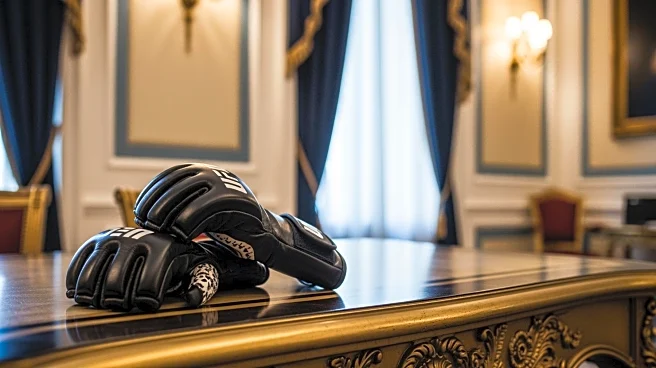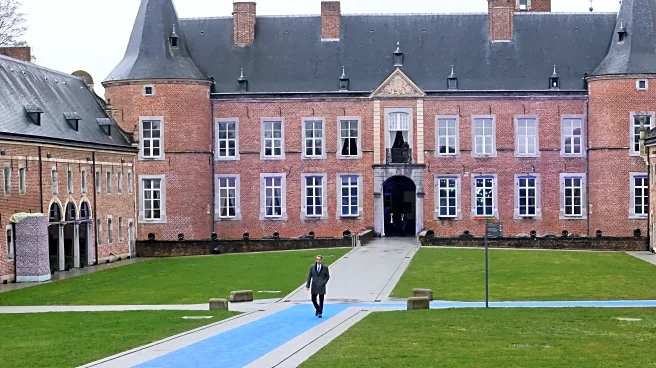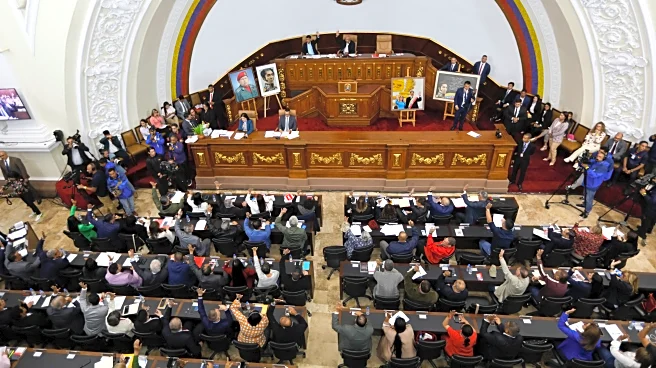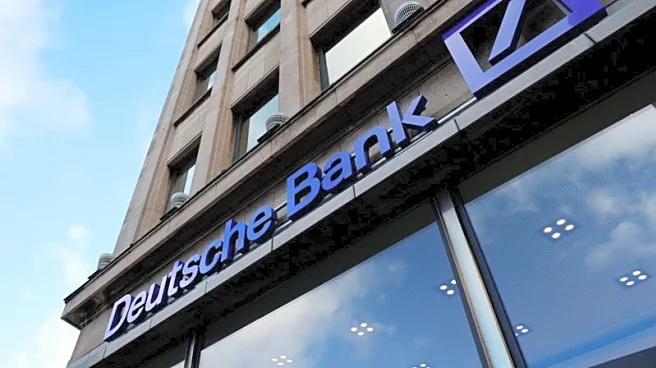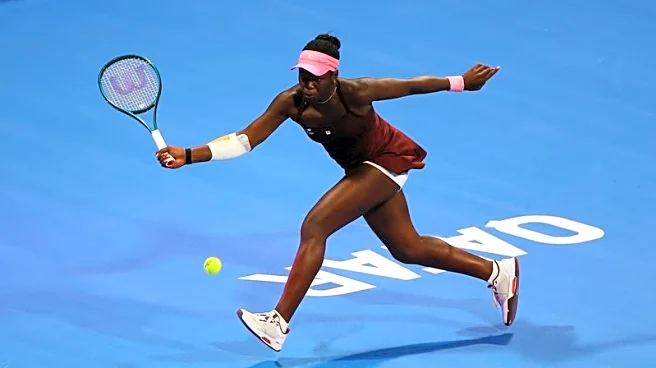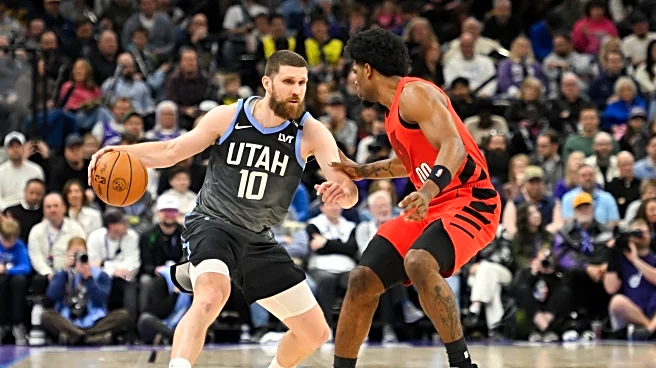What's Happening?
Former UFC heavyweight champion Francis Ngannou has expressed his desire for a UFC event at the White House, headlined by a fight between himself and Jon Jones. Ngannou, who last fought Renan Ferreira in October 2024 at PFL, winning by knockout, believes
that a match against Jones would be the biggest fight of all time. Jon Jones, who defended his UFC heavyweight title against Stipe Miocic in November 2024, has a record of 28 wins, 1 loss, and 1 no-contest. Ngannou's professional record stands at 18 wins and 3 losses. The proposed event is scheduled for June 14, 2026, and is currently in the budgeting phase, according to UFC President Dana White.
Why It's Important?
The potential UFC event at the White House signifies a unique intersection of sports and politics, highlighting the growing influence of mixed martial arts in mainstream culture. A fight between Ngannou and Jones would attract significant attention, potentially boosting the sport's visibility and popularity. This event could also set a precedent for future high-profile sports events at iconic political locations, enhancing the UFC's brand and expanding its audience. The involvement of prominent fighters like Ngannou and Jones underscores the sport's competitive nature and its appeal to a broad demographic.
What's Next?
If the event proceeds, it could lead to increased collaboration between sports organizations and political entities, potentially paving the way for more events at significant venues. Stakeholders, including UFC executives and fighters, will likely engage in negotiations to finalize the event's details. The fight's outcome could impact the fighters' careers, with potential title implications and shifts in rankings. Additionally, the event may influence public perception of the UFC and its role in cultural and political spheres.
Beyond the Headlines
Hosting a UFC event at the White House could raise ethical and cultural questions about the appropriateness of sports events at political landmarks. It may spark discussions on the commercialization of political spaces and the blending of entertainment with governance. The event could also influence future policies regarding the use of government venues for non-political purposes, potentially leading to debates on the separation of sports and politics.
